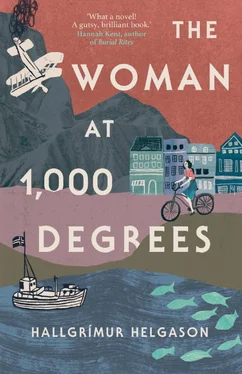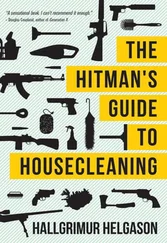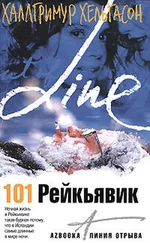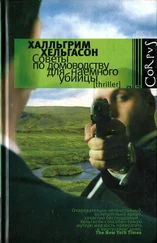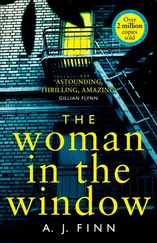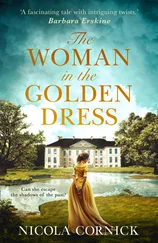17
Behind the Seven Summers
1929
He who has no memories of his mother had a good mother. I can’t remember anything of my mother from our years in the islands of Svefneyjar, seven summers and seven winters. And yet for most of that time we slept in the same bed. One never notices the most evident things and yet they are the best of all.
In the isolation of that remote part of the ocean, I enjoyed what the big cities of Europe were later to deny me: safety and warmth. My childhood was like an extension of the pregnancy: Mum was always around me and I in her, although I never got to see her face. For seven years we never went anywhere. I would later be torn up by the roots but was consoled by the fact that no one’s went deeper. They were so deep, in fact, that I managed to cling on to them for a whole world war.
Mum and I lost each other at the beginning of the war, and I blamed her for it. After the war, we were kept apart by the grand dame named Georgía. Most women are forever trying to flee their mothers, but I was constantly searching for mine. I longed for her company but at the same time wanted to spare her mine. By then I was no longer Mum’s child but rather Dad’s little woman; the war had thrown us together, and finally I followed him to South America. That was the seed of what was to become my basic feeling towards that woman: guilt. Mum was a better person than me, a more decent person than me, she was reliable. What’s more I’d failed to ‘make something of myself.’
For centuries her people had slaved away on the islands, far from all schools and office lifestyles, not to mention opportunities for women. I was the first in that thousand-year-old family to be offered the chance of an education, but instead I drifted through life without fulfilling the dreams that Mum had denied herself to preserve for me. On three occasions she asked me to think about it. Maybe the Commercial College would suit me best, maybe domestic sciences. ‘Look at how well that Vigdís Finnbogadóttir is doing,’ she’d say, ‘gone to France, to university.’ In the end I gave in, took a secretarial course for three weeks, and learned how to type, a skill that has served me well all my life, all the way into the garage, thanks to that good woman.
I sometimes try to imagine what it must have been like for Mum to travel back west again. A stunning twenty-five-year-old woman who was forced to squander the flower of her youth with a toddler girl, stuck on an island, toiling away in the cold and singlehood. Spring after spring, Christmas after Christmas. What was she thinking?
But things were even worse for Dad, since there’s always the other side of the coin. Every action conceals its opposite. Although it may be painful to be betrayed, it’s even worse to betray. When a bond of trust is broken, it leaves a gush of pain at first, but then a sense of freedom. The person who breaks that bond, however, has it tied around his neck and thinks he’s free until he senses it tightening. Slowly and slowly. That much I know.
Sometimes good fortune gives you only one chance, and woe to whoever botches it. No matter how hard Dad tried, he couldn’t get anything right. He bungled his law studies, crumbled at the pharmacy counter, fiddled with his violin, but could no longer find the right tune. He who gets lost in a wood tries to find his path again, but he who loses himself has no use for a path at all.
His indecision finally ushered him into a business he should never have got into: German clothes pegs (I’m still embarrassed to talk about it). In the end it was he who was hung out to dry for having confused stocks and stockings at a crucial moment. Dad could just as well have been stored in a wardrobe for seven years. He lost a whole chapter of his life. We waited for him on the other side of the sea, Mum and I, patient women in the age of man.
Because those tie wearers could do this: steep their love in vinegar and pull it out again seven years later, totally intact, just slightly bitter. Not that Mum didn’t dance with some of those sea dogs at the Flatey balls and smile at their desire behind the building, but hardly more than that. I don’t remember anyone showing up on the island to kiss her, but then again I’ve no recollection of anything about her in those years.
But I do remember Dad, of course, when he reappeared like a water-combed angel from the ocean.
It was the summer of ’36. On a beautiful, silvery mid-August day – when the season has reached its crest, clouds hang puffed up with heat over a viscous sea, and the mountains acquire slightly more European colours, milder and deeper – a blond man came sailing into the strait.
‘I stood for the entire crossing on the boat from Flatey. I just couldn’t sit down,’ Dad later told me.
And he stepped ashore. Without noticing her, he walked past a seven-year-old girl who had idled down to the shore to see what was happening, and found his Massa out in the field where she was raking hay: as dark haired as before, dreamy eyed as before, beautiful as before.
‘Hi.’
She looked up, and the rake froze momentarily in her hands before she continued, as if nothing were happening. The toothed crossbar of the implement shook as it struck the short, dry grass, and although the sun was hidden, her bare upper arms clearly bore the hallmarks of summer, brown from labour on top and a shimmering white below, which reminded him of a beautiful trout. He longed (this is something I’m sure of, I know my men, having lived with a whole army of them, though the teeth of their sexual beasts may vary in size)… he longed to kiss the brown part and bite the white.
‘Hi,’ Dad repeated. ‘Do you… do you remember me?’
She carried on raking vigorously.
‘No. Who are you?’
‘Hans. Hansi. You…’
‘Hans Henrik Björnsson? I thought that man had died. Giving birth.’
‘Massa… I… I’ve come.’
Once more the fork froze in her hands and she looked him in the eye.
‘I was expecting rain, but not you.’
Then she started raking again.
‘Massa… forgive me.’
‘Have you come here to moan?’ she said coldly, continuing her work with even more zeal than before. She was wearing a sleeveless steel-grey shirt with blotches of sweat under her armpits: dark half-moons that looked as if they had been embroidered into the material. Pearls of perspiration were about to fuse on her forehead. ‘What do you want?’
‘You.’
‘Me?’
At this point, Mum stopped raking and started to laugh.
‘Yes, Massa, I… I’ve been…’
He hesitated yet again, and Mum poked the pile of hay that lay between them and stretched along the field like a yellowing frontier between love and hate. Further down the way, other labourers were hard at work, Sveinki the Romantic and Buxom Rósa, both armed with rakes. The latter positioned herself behind a haystack to observe the newcomer.
‘It’s also been difficult for… but now I…’ Dad continued to stutter around his thoughts. Mum looked at the man, waiting for the rest. He tried again.
‘Now I know…’
But when nothing more came out of him, the woman gave up and said decisively, ‘I’d have more use for your hands right now. Go and get a rake from the shed.’
Dad later told me that he never worked so hard in all his life. Not even in the war, when he was digging trenches east of the Don and Dniester. He laboured like a hundred men that day and that whole week and almost finished the haymaking for the Svefneyjar farmer single-handedly. I remember admiring him as he tossed the bales into the barn, the muscles of his pale arms glistening in the sun. This half-Danish pharmacy cashier had revealed a secret talent for haymaking and concealed the blisters on his hands at mealtimes, although his daughter had spotted them and worshipped them just as the first Christians venerated Christ’s sacrificial wounds.
Читать дальше
